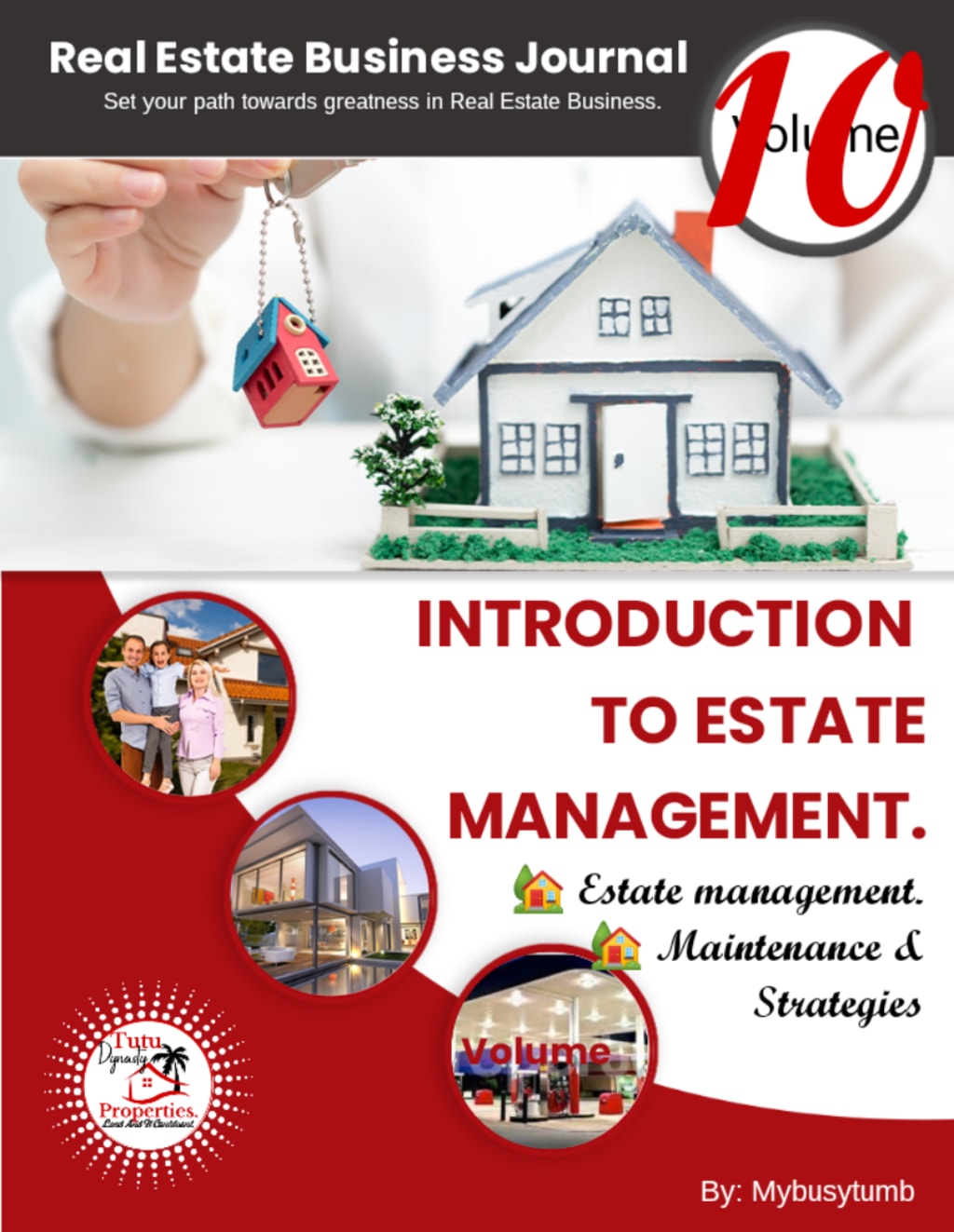INTRODUCTION TO EATATE MANAGEMENT.
Estate Management, Estate Maintenance and Strategies.

Real estate management refers to the process of overseeing, controlling, and supervising real estate assets or properties. This includes managing financial aspects such as rent collection, budgeting, and accounting, as well as ensuring compliance with legal requirements such as zoning regulations and property laws. Real estate managers also handle maintenance, repairs, and renovations of properties, as well as marketing and leasing activities. The ultimate goal of real estate management is to maximize the value of the assets under its control while providing a safe and comfortable living or working environment for tenants and users.
1. Introduction to Estate Management
Estate management is a multifaceted discipline that involves the administration and maintenance of both real estate and other property assets owned by individuals or organizations. The goal of estate management is to maximize the value of these assets, while also minimizing risk and ensuring that all relevant regulations are followed.
2. Understanding Real Estate
Real estate is an umbrella term that encompasses land, buildings, and other structures. It also includes any natural resources found on the land, such as grains, minerals, and water. Managing real estate involves an understanding of property law, including ownership rights, zoning regulations, and taxation.
3. Managing Physical Assets
One important aspect of estate management is managing the physical assets that make up a real estate portfolio. This includes buildings, land, and infrastructure like roads and bridges. In order to maximize the value of these assets, estate managers must maintain them properly and ensure that they are in compliance with local laws and regulations.
4. Financial Management
In addition to managing physical assets, estate managers must also manage the financial aspects of their portfolios. This includes accounting for income and expenses, setting budgets, and forecasting future revenue streams. Financial management entails developing and implementing plans that optimize a property's return on investment while minimizing risk.
5. Risk Management
Risk management is a critical component of estate management, as owners and investors face a variety of risks in the real estate industry. Some common risks include market fluctuations, natural disasters, and changes in legislation. Estate managers must take steps to mitigate these risks by implementing effective insurance policies and contingency plans.
6. Maximizing Value
Lastly, estate managers must focus on maximizing the value of their portfolios. This includes developing long-term investment strategies, conducting regular analyses of market trends, and identifying potential opportunities for growth. By implementing effective asset management practices, estate managers can unlock the full potential of their portfolios and achieve long-term success.
PROPERTY MAINTENANCE AND STRATEGIES.
Property maintenance involves the regular upkeep and repair of a property to ensure that it is safe, functional, and attractive to tenants or users. This can include tasks such as cleaning, painting, landscaping, and repairing equipment or appliances.
There are several strategies for effective property maintenance:
1) Create a maintenance schedule: Develop a schedule for regular inspections and maintenance tasks, such as cleaning gutters, changing air filters, and checking HVAC systems. This will help prevent small issues from turning into larger problems.
2) Prioritize safety: Focus on safety issues first, such as replacing faulty wiring, repairing leaks, and fixing broken locks.
3) Hire a professional property management company: Property management companies offer experienced professionals who can handle routine maintenance, emergency repairs, and tenant relations.
4) Consider preventative measures: Regular inspections can help identify potential problems before they become costly repairs.
5) Update equipment and appliances: Consider replacing older equipment and appliances with newer, more energy-efficient models that are less likely to break down or require repairs.
6) Use quality materials: High-quality materials may be more expensive upfront, but they can save money in the long run by reducing the need for frequent repairs.
Overall, the goal of property maintenance is to provide a safe, functional, and attractive environment for tenants or users while minimizing costs and maximizing the longevity of the property.
Conclusion:
In conclusion, estate management is a complex but vital discipline that involves a variety of skills and knowledge areas. By leveraging best practices in real estate, financial management, risk management, and asset management, estate managers can ensure that their property assets are optimized for growth and success.






Comments
There are no comments for this story
Be the first to respond and start the conversation.